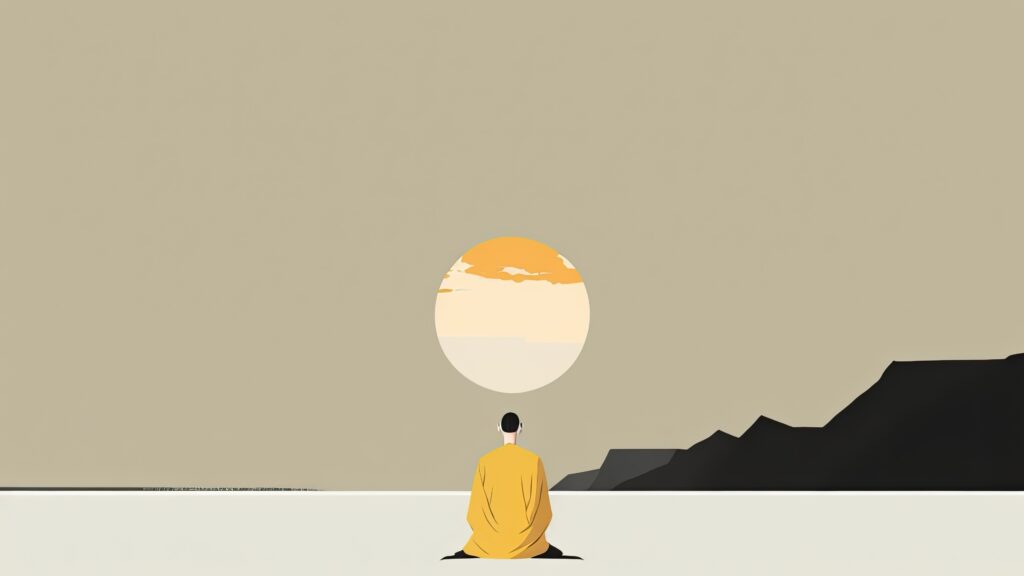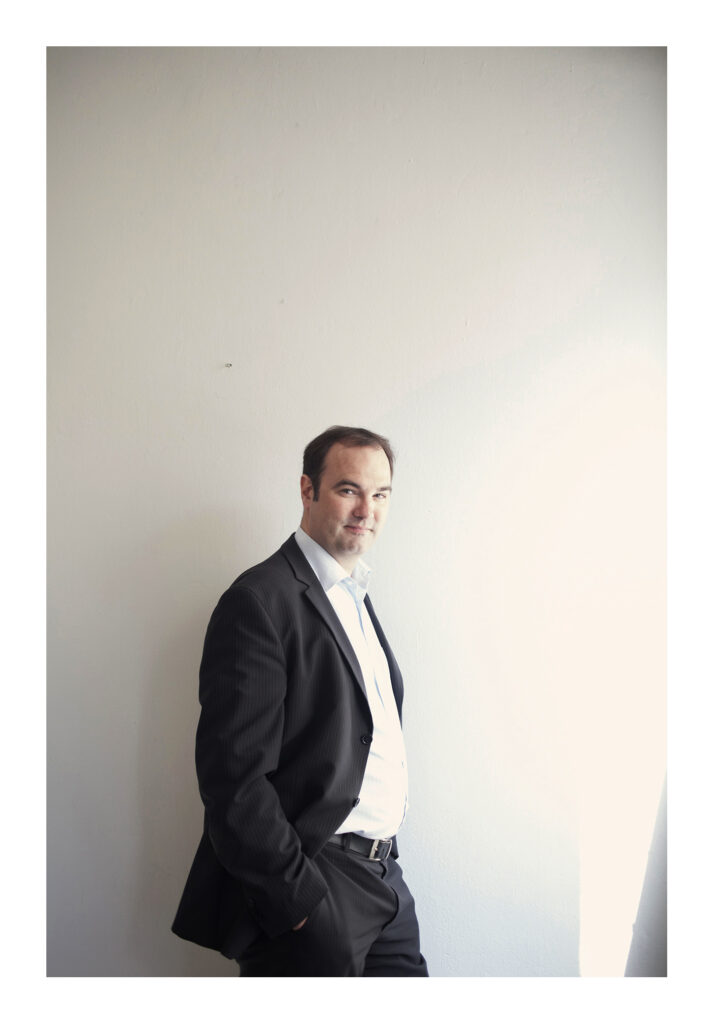A reflection of the level of consciousness in contemporary society Part 1
Author: Prof. Dr. Niko Kohls
Issue No: TV 96
The question of the level of consciousness in today’s society becomes all the more important the more we realise how much our lives are shaped by the level of development of our consciousness. Niko Kohls explains in an interview how important emotionality, empathy, mindfulness and spirituality are in a society based on efficiency and performance. Mindfulness and spirituality take on significance as soon as people ask themselves the question about the meaning of life.
Tattva Viveka: We would like to talk about the importance of spirituality for human beings, and also about the relationship between science and spirituality – which is quite tense, even to the point of mutual hostility. You have been working on the topic of mindfulness for a long time, which is a sub-area of these levels – spirituality and science – and have published a number of research papers on meditation and mindfulness, together with other expert scientists such as Harald Walach or Tilo Hinterberger.
You assume that at the beginning or in the middle of the 2000s, the demarcation line [border] of social acceptance lay at the concept of mindfulness, i.e. it was disputed whether it could be scientifically recorded at all and whether it was serious. In recent years, however, things have changed. The topics of mindfulness and meditation have become socially acceptable. They have often been the subject of studies and have made their way into broader sections of society, even into companies, for example, which offer courses and programmes for their employees. In contrast, the term spirituality is still controversial.
Nevertheless, you would say that spirituality plays an essential role in human life. At the beginning of your book ‘Mehr Lebensfreude durch Achtsamkeit und Resilienz’ (More Joy in Life through Mindfulness and Resilience), you take a very scientific approach and start from the physical: from the brain physiology of hormones or neurotransmitters, the physical symptoms of stress and so on. Then you move on to the complementarity of mindfulness and spirituality and write at the end of the book: “In order to explain the state of coherence, one has to take into account another, possibly transcendent dimension of spirituality. For meaningfulness and connectedness can be seen primarily as the result of spiritual experiences and beliefs.” (S. 329)
How do you understand spirituality? How important is it for human beings? How can it be scientifically analysed and what is science working on in this regard at the moment?
Prof. Dr. Dr. Niko Kohls: Thank you very much, we are already in the middle of the topic. I went to England in 2005, came back to Germany in 2008 and then got the impression that society in Germany has become much more open to the topic of mindfulness and what is swimming in its wake. Mindfulness-based programmes were successively used not only in clinical settings, but also in schools, in education. They were requested by companies and I felt that something had changed in perception and attitude. One has to add that in the Anglo-Saxon world, the topics of mindfulness and spirituality have always been viewed more openly by academia and society. One can certainly speculate about what this is due to.
I believe that this implied prohibition shield hung around the topics of consciousness, mindfulness, spirituality, at least in scientific/intellectual/academic circles, is strongly related to the fact that we have a specific German past.
Especially in the Third Reich – especially in relation to the pedagogy and educational science of the National Socialists – it looks like the following narrative: An individual surrenders to the great whole, and the great whole is conceived as the body of the people, certainly in a metaphysically charged but at the same time biologised sense. This, as we all know, has quite an explosive power, and in my opinion this is a major stumbling block that subsequently made it very difficult in post-war times with its historical discontinuity to continue working on the aforementioned topics – at least within the German academic system.
One can say, somewhat simplified that with the Frankfurt School came this statement: any theory or concept that claims to be universally valid is by definition fascistoid, and this can clearly be imposed on spirituality (whatever that is, science also disagrees on that). This immediately takes the issue off the table.

The next point is that spirituality is difficult to define. I started collecting definitions many years ago and stopped at about the 380th definition. A useful distinction is that of a vertical and a horizontal form of spirituality. Horizontal spirituality is a humanistic, empathic-compassionate-caring, connected to the world. There would be no metaphysical-transcendental component to it. Opinions differ greatly as to whether a secular humanism or a naturalistically based ethical humanism could already be described as spiritual.
Anyone who follows the discussions in America around Steve Pinker, Sam Harris or Jordan Peterson and other protagonists, for example, will see that many questions are currently revolving around the topic of “What actually is spirituality?” and the meaningfulness of existence or the question of the criteria for a fulfilled life.
To a certain extent, spirituality is also a black-box topic. We simply cannot claim to have found a definition of spirituality on which everyone could agree and on which there would be a consensus across human images and world views.
To be fair, one must add that there is rarely a generally binding consensus in science that almost everyone agrees on. This exists from time to time, for example in medicine, where there is a fixed definition of what normal blood pressure is; the question of how much deviation from this is acceptable, i.e. normative limits for systolic or diastolic blood pressure, is much more controversial.
But with a topic as complex and multi-faceted as spirituality, this is extremely difficult. With mindfulness it is a bit easier because it can be described more succinctly as a specific state of consciousness. Therefore, at least the interpretation and definition are a little easier here, although it is not undisputed how many factors mindfulness actually consists of. The psychometric measurement instruments assume different constructs with specific factors – in the case of the Freiburg Mindfulness Inventory (FMI) developed by our research group, these are presence or acceptance, for example. However, the term “spirituality” is far more multifaceted.
TV: You also ask in your book what spirituality is exactly. Although there is no universally valid definition of spirituality – lat. spiritus (spirit, breath) – there is a broad consensus that it can be understood as the experience-based knowledge of a dimension through which the objective everyday and individual learning world is transcended and, from the point of view of the experiencer, a universal, meaningful, creatively active principle is often revealed. Spirituality is thus experiential. It is the individual’s own empirical experience of a transcendence.

Kohls: Yes, the question that follows is of course: What is transcendence? If you take it to mean something that leaves our everyday or life reality, then it means that the boundary of this world is transcended. I think that an important core element of spiritual experience is the experiential dimension. A theoretical framework supported only by convictions and axiomatic beliefs is inconceivable because it lacks the essential component of one’s own experience that human beings simply need. We are extremely sensual beings. Ninety percent of what we process is visual and auditory and comes from the external and then, of course, internally projected world of experience, and other levels such as the senses of smell and touch are added. This experiential dimension seems to me to be central. Our neuronal architecture is constructed in the same way.

About the interviewee:
Medical psychologist Prof. Dr. Dr. Niko Kohls has been scientifically studying mindfulness, spirituality and their connection to self-regulation ability, resilience and health for more than 30 years. Since 2013, the Munich native has been working at Coburg University of Applied Sciences as a professor of health sciences with a focus on health promotion. In the summer of 2022, his book Mehr Lebensfreude durch Achtsamkeit und Resilienz – Gelassener und stärker durch die richtige Balance was published. He has taught as a lecturer at universities and colleges for over 25 years, has authored more than 100 scientific publications, and has now delivered over 500 keynotes, lectures, seminars and workshops for schools, colleges and companies. In 2019, he was appointed to the European Academy of Sciences and Arts in Salzburg. In 2023, he and his colleagues founded the Institute for Humans & Aesthetics (https://www.institutaesthetik.de/).
This article was originally published on the German website: Die Ogdoadische Tradition




